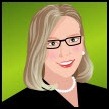Curbside Consult with Dr. Jayne 4/18/11
I try not to waste too much time on the Internet, but keeping an eye out for interesting stories on health and technology is an occupational hazard. How could I not read a piece with the headline Playboy Mansion Illness Traced to Hot Tub Bacteria when it crossed my screen? Apparently our old friend Legionella (the bacteria that causes Legionnaires’ disease) was found in a hot tub at the Playboy Mansion after scores of visitors were sickened.
As if a story about hot tubbing with Hef isn’t tawdry enough, epidemiologists were no doubt engrossed when the case was presented last week at the Centers for Disease Control’s annual conference in Atlanta. So what does this have to do with health and technology? Well, it seems that epidemiologists used social media to contact the 400+ people who were at a fundraising event where they came into contact with the bacteria.
In other news, the Associated Press reports that Odd Work Schedules Pose Risk to Health. From my experiences as an intern and resident, I could have written that one — it’s not good for the caregivers or their patients. According to Dr. Charles Czeisler, chief of sleep medicine at Brigham and Women’s Hospital in Boston, 30-50% of night shift workers admit to falling asleep at least once a week while working.
Although the article highlights findings related to recent issues with air traffic controllers snoozing on the job, the facts play to all of us in healthcare and IT, also. Czeisler states that taking work home on BlackBerrys and computers as well as the 24×7 availability of work and entertainment options contributes to sleep issues.
Somehow I missed this in my recent studies for my medical board recertification exam, but night shift workers are more likely to have chronic intestinal and heart diseases. Apparently, the World Health Organization has also identified shift work as a probable carcinogen. Not good news for those of us in the business of 24×7 technology and patient care activities, or the patients either. Having been sleep deprived for nearly five years during my training, I understand the near misses (and sometimes real misses) that can happen in the middle of the night when the thought process starts to get fuzzy.
These types of situations are great for employing technology as an additional safety net for our patients. Long hours aren’t going away (nor are distractions, overloaded schedules, nursing staff burdened with regulatory nonsense that detracts from patient care, or any of the other dozens of things that impact clinical decision-making). But well-placed clinical tools (like the Thomson Reuters tools mentioned by Dr. Gregg on HIStalk Practice) can really make a difference.
Personally, I’d much rather have my anesthesiologist calculating drugs and dosages in a well-crafted electronic record than doing equations on the leg of his scrub pants (which, thank goodness, I haven’t seen in a long time). However, the systems have to be well designed, easy to use, and accurate if they’re going to make a difference. Users have to commit to attending training, using the system properly, and not short-cutting steps. IT teams have to keep the systems available (not to mention happy and healthy) continuously. Otherwise, make sure you have your scrubs on — and your favorite ballpoint pen.



RE: Surescripts survey finds that more than half of of patients have experienced delays or disruption in getting their prescriptions…